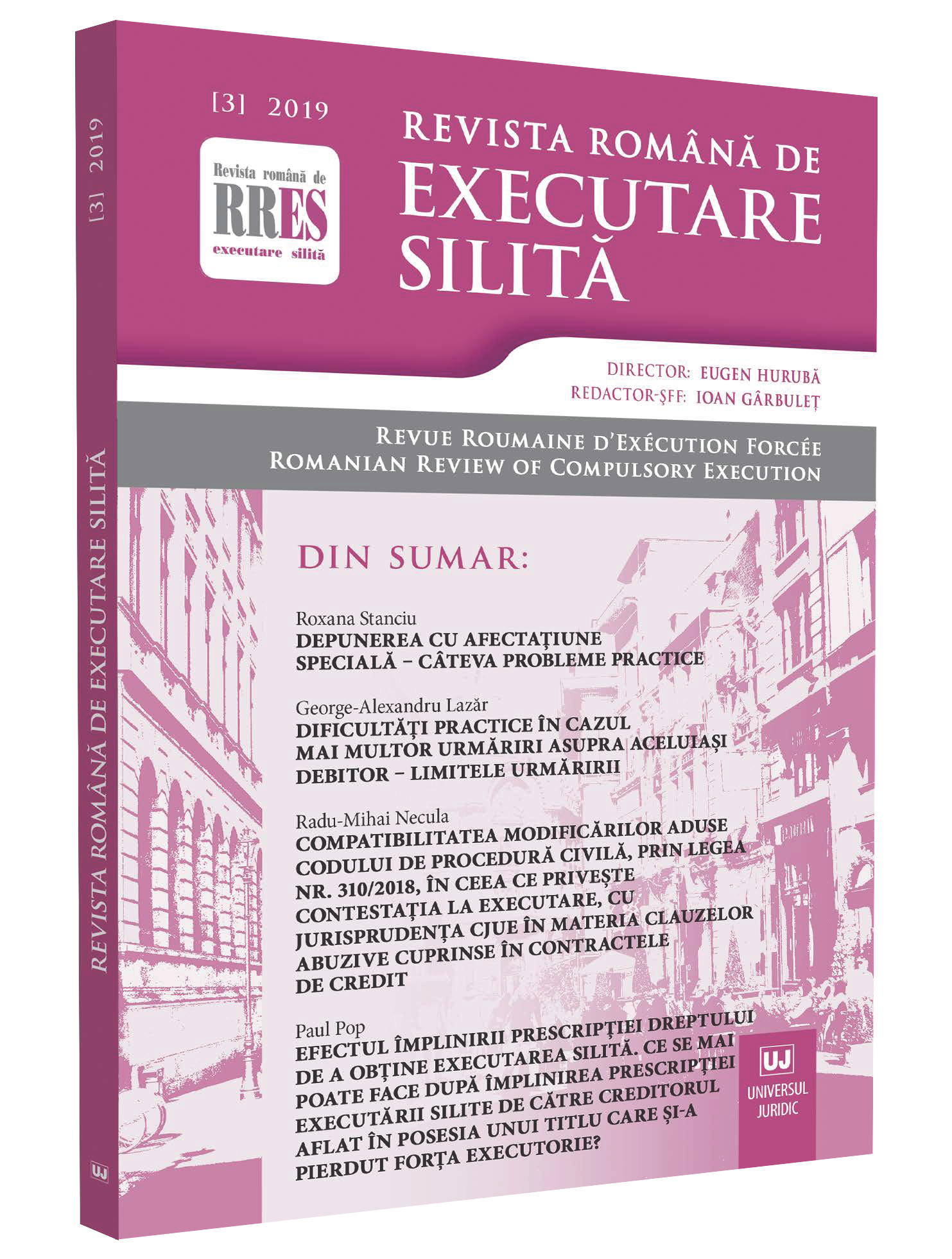Aspecte privind reglementarea recentă în România a medierii fiscale în procedura executării silite. Similitudini cu executorul judecătoresc mediator. O analiză de drept comparat a instituţiei mediatorului fiscal
Aspects regarding the recent regulation in romania of tax mediation in the compulsory enforcement procedure. similarities with a mediator bailiff. compared law analysis of the institution of tax mediator
Author(s): Arina DragodanSubject(s): Law, Constitution, Jurisprudence, Civil Law
Published by: Universul Juridic
Keywords: tax mediation; institutional mediation; conventional mediation; negotiation; compulsory enforcement;
Summary/Abstract: The mediation in the case of tax compulsory enforcement was regulated at the beginning of this year by the Romanian legislator by inserting Article 2301 in the Fiscal Procedure Code. Recently, on 28 June 2019, an order of the president of the National Agency for Fiscal Administration approved the procedure of mediation, as well as the documents which have to be submitted by the debtors in order to justify their economic and financial situation. The tax mediation procedure is not the same as the activity of conventional mediation conducted through mediators, it is a special mediation between the tax body and the debtor, without requiring the presence of an independent third party, the mediator. This procedure is voluntary, not mandatory, and it applies in the case of the debtors against whom the fiscal compulsory enforcement procedure was initiated by communication of a payment order and which, within 15 days from its communication, submit a notification regarding the mediation intention to the competent tax bodies. From this date, the compulsory enforcement procedure is suspended for the respective obligations, but, during the mediation procedure, the tax body may order precautionary measures. As a legal institution, we assess that the tax mediation without a mediator is, in fact, a negotiation, being a modality of amicable settlement outside the court of the conflict between the taxpayers and the tax bodies within a tax compulsory enforcement. Either mediation or negotiation, a step was taken, however, within the communication and negotiation between the tax authorities and the taxpayers. It should be taken into account that there is also a risk that the tax mediation be used by a taxpayer in order to avoid or postpone the compulsory enforcement measures for its tax debts and not in order to clarify the extent of the debts and to find the best solutions for their payment. The procedure could be improved in the future depending on its results and on the difficulties encountered in practice. Therefore, by this scientific paper, we intend to make an analysis of the mediation procedure within the tax compulsory enforcement, examining in this respect the notion of mediator, institutional mediation and conventional mediation and, at the same time, bringing arguments of compared law regarding the institution of tax mediator, emphasizing its useful role in defending the taxpayers’ rights. Also, we shall make a brief parallel analysis with the role of the bailiff in the compulsory enforcement procedure under the common law, which has among its duties the amicable recovery of receivables.
Journal: Revista Română de Executare Silită
- Issue Year: 2019
- Issue No: 3
- Page Range: 11-39
- Page Count: 29
- Language: Romanian
- Content File-PDF

